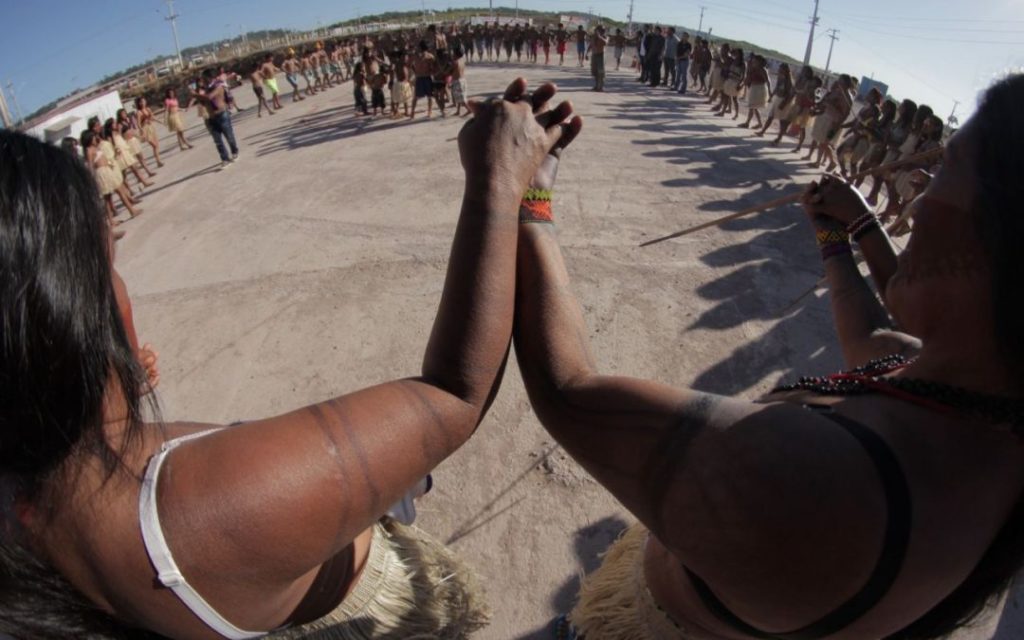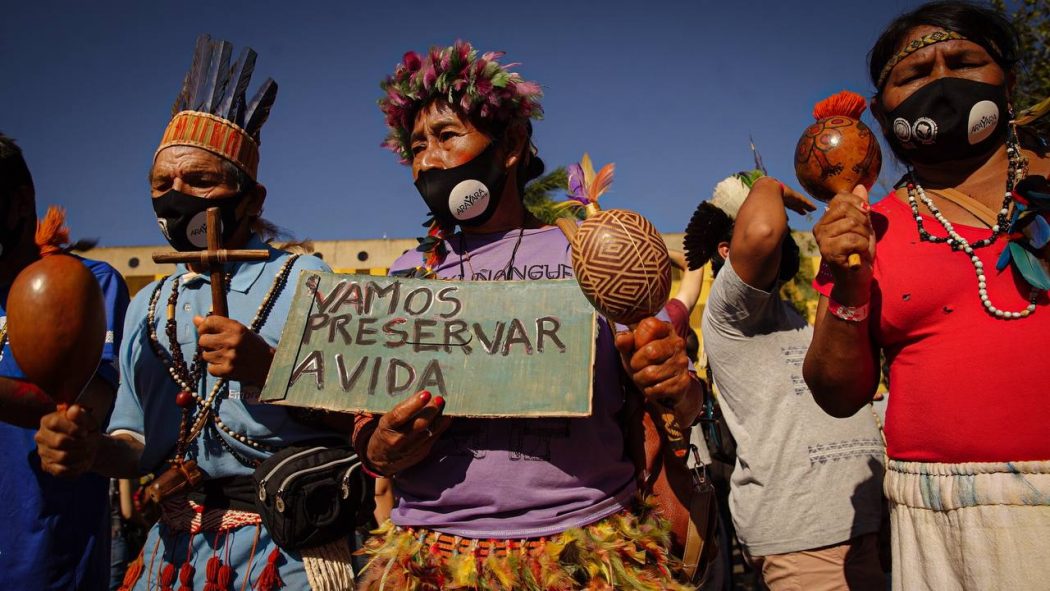With informations by APIB.
APIB launched earlier this week a International Complaints Dossier of Brazil’s indigenous people. The document brings together a series of data and information that demonstrate that president Bolsonaro selected indigenous peoples as enemies of his government, and turned his hate speeches into state policy. The document also relates Bolsonaro’s actions and omissions with the increase in cases of violence and conflict in indigenous territories.
The initiative is part of Apib’s strategy to expand international knowledge about the emergency situation experienced by Indigenous Peoples in Brazil. Last week, the Articulation filed a complaint in the International Criminal Court in The Hague, calling for the investigation of Bolsonaro for crimes of genocide and ecocide. Now, the dossier presents a perspective of broad analysis, to expose to the world the anti-indigenist agenda that is advancing in Brazil.
“We, the indigenous peoples, are the main guardians of forests, freshwater fountains and biodiversity, which are still preserved in our territories. When indigenous land is at stake, the climate and environmental crisis is aggravated in a way that already affects all regions and peoples of the world. This dossier thus stretches beyond the more objective interests of indigenous peoples. It reports on the destruction of our rights, which will bring terrible consequences to all of us, human beings”, says the dossier.
Next, a summary of main threats to Brazilian indigenous people as described in the dossier.
Main institutional violations and threats:
– Dismantling indigenist policies is particularly noticeable in relation to the National Indian Foundation (FUNAI), the Brazilian State agency in charge of protecting the indigenous peoples and promoting their rights, as well as handling essential stages of land demarcation processes. This agency has been targeted by constant attacks and significant structural changes (for lack of professional, technical and financial resources as well as for political interference), with impacts on their institutional objectives geared for indigenous peoples, which include, particularly, land demarcation.
– Persecution and criminalization technologies used by state power to try and silence the fight of indigenous peoples, including practices such as imprisonment, coercive summons, home break-ins, physical and political persecution, threats over the social media, family exposure, police and judicial harassment, persecution by local political leaders, among so many others.
– Federal Government not only allows but promotes a series of constitutional and human rights violations. Until May 2020, the current administration certified 114 farmlands under the Land Management System (SIGEF), which encroaches on non-certified indigenous land, against previous legal reports. Altogether, those farmlands cover more than 250,000 hectares of indigenous areas. The criminal invasion of traditional territories is publicly encouraged by the Federal Government in broad daylight during the pandemic.
– Proposed bill 490/2007: It proposes to transfer, to the National Congress, the competence to demarcate indigenous land and Conservation Units, among other measures that violate exclusive usufruct rights over indigenous land. Disrespectful of the Constitution, this bill disables demarcation of indigenous land and enables the government to reclaim land that has been reserved for the indigenous peoples, and, furthermore, it limits indigenous usufruct and management of land as it opens up use of water resources and energy potentials to foreign agents.
– Project for legislative decree 177/2021: it authorizes the President of the Republic to leave the International Labor Organization Convention 169, a major global instrument for the protection of original and traditional peoples.

Main socio environmental threats:
– In the State of Pará, the Munduruku, indigenous land, while waiting for its ordinance to be written, experiences an outstanding increase of violations by gold miners, palm heart extractivists and loggers, encouraged by president Jair Bolsonaro. On March 25, 2021, the Wakoborun Association of Women Mundurku, in the municipality of Jacareacanga, in Pará12, was attacked by gold miners and allies and had its headquarters torn down and set on fire.
– Massive invasion of illegal gold miners – supported by narcotraffic schemes – in the Yanomami indigenous land reaches scarry figures: more than 20,000 gold miners, provoking the devastation of an area equivalent to 500 soccer fields.
– Mining and gold prospecting have been increasingly affecting the territories, the health and the ways of indigenous lives. Free mining and gold prospecting activities in indigenous land is a political priority, as stated by president Jair Bolsonaro. As included in an official document signed by the president, approval of bill 191/2000, which opens indigenous land to mining, is at the top of the list of legislative priorities of the Presidency.
-The first two years of the Bolsonaro administration, 2019 and 2020, are marked by a historical increase of deforestation in the Amazon region. This process leads to incalculable loss to biodiversity and, to the indigenous peoples it means death and the destruction of their territories, with subsequent elimination of their livelihoods and cultural practices, where deforestation is a most visible form to destroy the indigenous lives that depend on those forests.
Read the full dossier (English, Portuguese and Spanish).
Take action and support the Indigenous March that will be held from August 22 to 28 in Brasilia.

